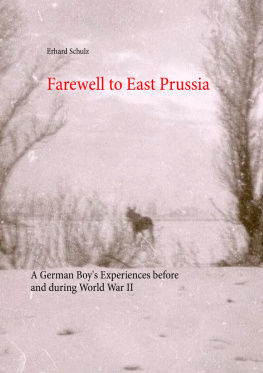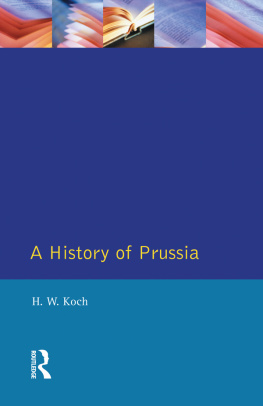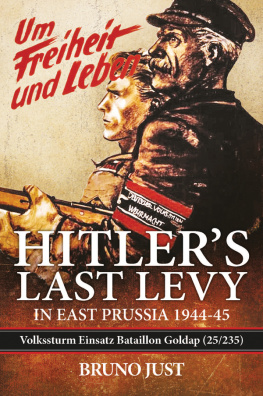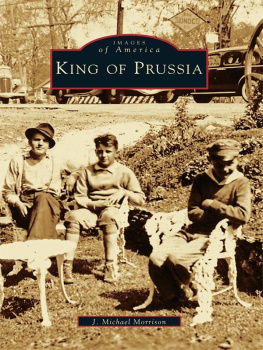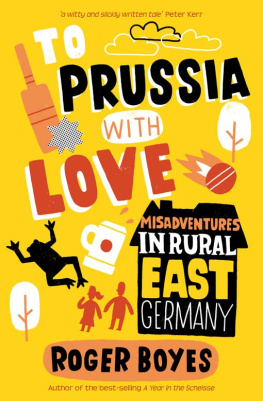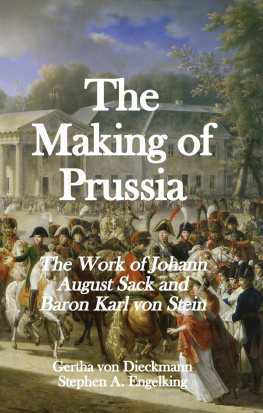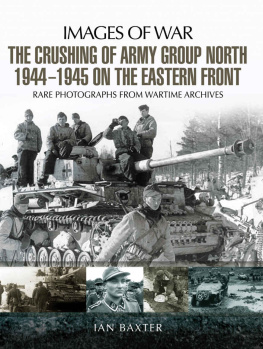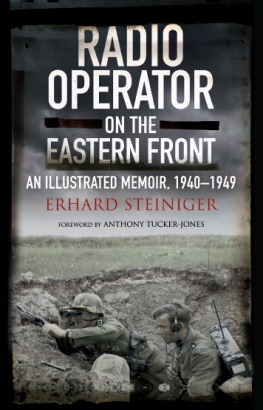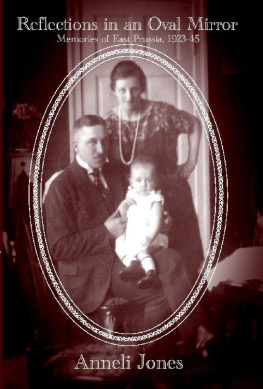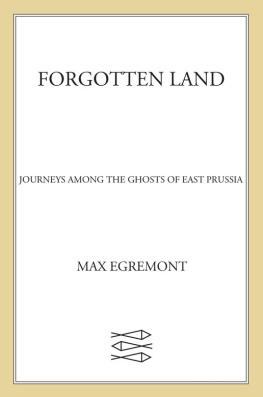The author: ERHARD SCHULZ was born in 1933 in Elchniederung County, at that time a remote marshland in North-East Prussia, Germany. He graduated from high school in Lehrte, Lower Saxony and worked as a financial accountant for the companies Hanomag, Salzgitter-Chemie and Bahlsens Keksfabrik. He retired in 1995. In 2010 he died of pancreatic cancer.
The translator/ editor: Dr. Ortrun Schulz was born in 1960 in Hannover, Germany to Erhard and Rita Schulz.
The author describes his childhood on his parents farm in East Prussia and his first school years in Erlenrode und Kuckerneese.
The Second World War changes peoples lives. As an eleven-year-old boy, along with his mother and two brothers, he experiences the Great Trek on a horse-drawn harvest wagon. It starts in October 1944 and ends six months later in April 1945, after a drive of more than 750 miles through East Prussia, West Prussia, Pomerania, Mecklenburg, and Lower Saxony to Sievershausen near Hannover, Germany. The stages of their struggle and their encounters along the way are depicted with remarkable honesty. Many striking details, often strange and unimaginable, sometimes touching to the heart, are included.
Original German title: Kindheit in Nord-Ostpreuen und Flucht 1944/45: Erinnerungen,
2003 Erhard Schulz
First English edition: Childhood in East Prussia and Flight in 1944/45: Recollections,
2003 Erhard Schulz and Ortrun Schulz
Second English edition: A German Boy Remembers: How World War II came to East Prussia,
2014 Ortrun Schulz
Third, greatly improved English edition 2015 Ortrun Schulz
Printing and Production: BoD Books on Demand GmbH, Norderstedt, Germany
ISBN 978-3-7386-7500-9
Dedicated to my daughter Ortrun and our friends, Katie and Don Wolgemuth, Pennsylvania, USA
Editors Preface to the Third Edition
My dad originally wrote this book in German and dedicated it to me so that the younger generation might learn something about life in the old days in this remote part of Germany, and the experiences and hardships of the refugees during World War II. It made a deep and lasting impression on me. Their life on a farm, surrounded by abundant nature, was determined by the seasons and family traditions. Then all this was gradually subjected to a dramatic change. The cries of hares in the fields wounded by farm equipment were replaced by cries of people. Formerly friendly phenomena turned into their life-threatening counterparts: songbirds in the air were substituted by war planes; kids who had been ice skating for fun later had to struggle in the Great Trek of thousands of refugees, where many fell in and died in the icy water of the bay. The fire, which had been burning in their cozy stove before, was finally taking over their whole homeland.
To make this book available to our friends in Pennsylvania, USA, I translated it into English in 2003, and after several more people there also became interested in it, we published it. One day my parents phone was ringing and there was an English-speaking guy on the phone who introduced himself as John Bush from Western Australia. He wanted to let my father know that this was the best book he had ever read on this matter. His wife was from the same part of Germany, too. We were amazed and delighted to hear this.
Sometimes I have given a literal translation of names in brackets because of their connotations. For example, my father was born in Rehwalde (translated as Deerwood), in Kreis Elchniederung (translated as Elk Valley County).
A note about the animal on the book cover: East Prussia had a large population of moose. I hesitated whether I should call it elk instead, especially since this sounds more like the German Elch, and it says in Wikipedia that The moose (North America) or Eurasian elk (Europe) (Alces alces) are the same. I may use either one to denote the same animal.
I am not a native speaker of English, so Id like to give special thanks to Cathy Crosslin and Daniel Walker for proofreading my manuscript. With their help, this edition could be improved a great deal.
There are also a few more pictures added which will enhance the reading experience. Two maps for reference can be found at the back.
Ortrun Schulz, Hannover, Germany, 2015
Foreword
Almost sixty years had to pass before I got the inner strength to write down my experiences of that time, particularly those of the escape, and save them from being completely forgotten. Once already, many years ago, I had taken my writing paper along on a vacation because I wanted to work on it when the weather was bad, but nothing came out of it.
At that time, the memories of those terrible months upset me so much that I was not able to write down any of them. Only now, after I have finally written them down, I am miraculously freed from the shadows of the past. Now at last, I feel that I have gained enough inner peace to expel the images of the escape from my mind. I may occasionally take this book into my hand, turn the pages and state without emotion, So thats how it was at that time.
I was eleven years old then and perceived the first days of our escape in October 1944 as highly interesting. While sitting on our flight wagon, I thought of writing down all these impressions to preserve them. Since I had neither pencil nor paper, I couldnt carry out this idea. However, this was good in a way because when the flight continued through the winter of 1945, I wouldnt have had the strength or opportunity to keep a diary. Cold, ice and snow, constant fear, hunger and exhaustion suffocated every thought of taking notes. Survival alone mattered.
Persistent danger and hunger sharpened my senses and forced me to continuously keep an eye on my surroundings. I can very clearly memorize many incidents of the escape because they were imprinted in my mind like photos. Nevertheless, I wouldnt want to rule out the possibility that I misplaced some memories here and there.
I experienced the war as a kid, which is why my recollections are those told from a childs point of view. I have also tried to use some of the slang expressions common in that region at that time. And since the dramatics of the flight cannot be fully understood unless one has at least a rough idea of the general situation concerning the enemys front line, I have included some historical facts in my narrative which I later learned from the literature about this time.
This book doesnt blame or accuse anyone for the horrible war events. My intention is to report impressions as an eye-witness, as far as my memory allows.
Its obvious to me now, that my childhood was a carefree, beautiful and peaceful time in Elk Valley County, despite the war having been going on for some time already before it actually came to us. The people in the cities, particularly children, were much worse off. They starved for many years, and found no sleep at night because they had to hide from bomb attacks in bunkers. Many people were hit, lost their homes or lives, or were evacuated. These things were happening at a time when we were still living in almost perfect peace in our area.
Even our escape would not be noteworthy if it was compared to the experiences of many other refugees. We neither starved nor froze to death on the way; we didnt drown and we werent shot. We didnt get caught between the fronts in direct war activities. And our luck was that we didnt experience the rabble of Russian soldiers.
Nevertheless, I have decided to record my memoirs after such a long time because this has always been a deep wish of mine, and I wanted to free my soul at last. Furthermore, I thought that it might also be of interest to my daughter to learn something about her fathers childhood, the war and the Great Trek of refugees. Finally, for my closer relatives and friends of the family, it may also be interesting to read about what some people were exposed to at that time.

